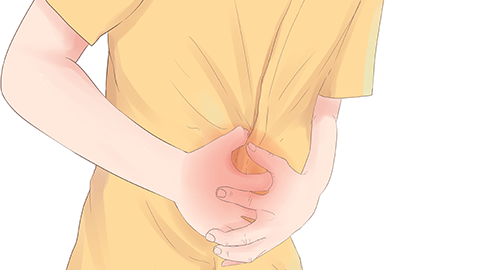What causes stools to come out in clumps?
Generally, stools appearing in clumps may be related to insufficient water intake, inadequate dietary fiber intake, constipation, irritable bowel syndrome, or intestinal flora imbalance. It is recommended to seek timely medical advice, identify the underlying cause, and undergo symptomatic treatment under the guidance of a qualified physician. Detailed explanations are as follows:

1. Insufficient water intake
The form of stool is related to its water content. When the body lacks sufficient water intake, the intestines absorb more water to maintain fluid balance, resulting in dry stools and the appearance of stools in clumps. It is important to increase daily water intake to keep the intestines moist.
2. Inadequate dietary fiber intake
Dietary fiber increases stool bulk and helps maintain soft stools. When dietary fiber intake is insufficient, stools can become dry and hard. It is advisable to consume more fiber-rich foods to promote intestinal motility and maintain smooth bowel movements.
3. Constipation
Constipation is usually caused by slowed intestinal motility. Excessive water absorption by the intestines leads to dry, clumped stools. It is typically accompanied by symptoms such as difficulty passing stools, reduced frequency of bowel movements, and bloating. Treatment may include medications such as bisacodyl enteric-coated tablets, lactulose oral solution, or glycerin suppositories, as directed by a physician.
4. Irritable Bowel Syndrome (IBS)
IBS may be triggered by factors such as intestinal infections or imbalances in the gut microbiota. Patients experience intestinal dysfunction and irregular bowel movements, leading to abnormal stool shapes. Symptoms typically include abdominal pain, bloating, alternating constipation and diarrhea. Treatment may involve medications such as Bifidobacterium triple viable capsules, loperamide hydrochloride capsules, or trimebutine maleate tablets, as prescribed by a doctor.
5. Intestinal flora imbalance
Imbalance of intestinal flora is usually caused by an unbalanced diet, intestinal infections, or other similar factors. Beneficial bacteria decrease while harmful bacteria increase in the intestines, leading to stools appearing in clumps. Additional symptoms may include bloating, diarrhea, and indigestion. Treatment options include medications such as compound acidophilus tablets, Bacillus subtilis and Bifidobacterium bifidum granules, or Clostridium butyricum tablets, as directed by a physician.
Maintaining healthy lifestyle habits, ensuring adequate rest, and avoiding excessive fatigue are also important for maintaining intestinal health.




